Understanding lip licking and non-nutritive chewing in horses
By: Nestor Imberti Posted: 21/01/2022
Much has been said about the human–horse relationship. A good understanding of specific equine gestures and behaviour is not always possible.
Some conclusions are drawn without any scientific evidence and, sometimes, these beliefs are commonly widespread and accepted among most horse enthusiasts.
Based on research findings and scientific studies, I have written a series of three articles where I will try to shed some light on the matter.
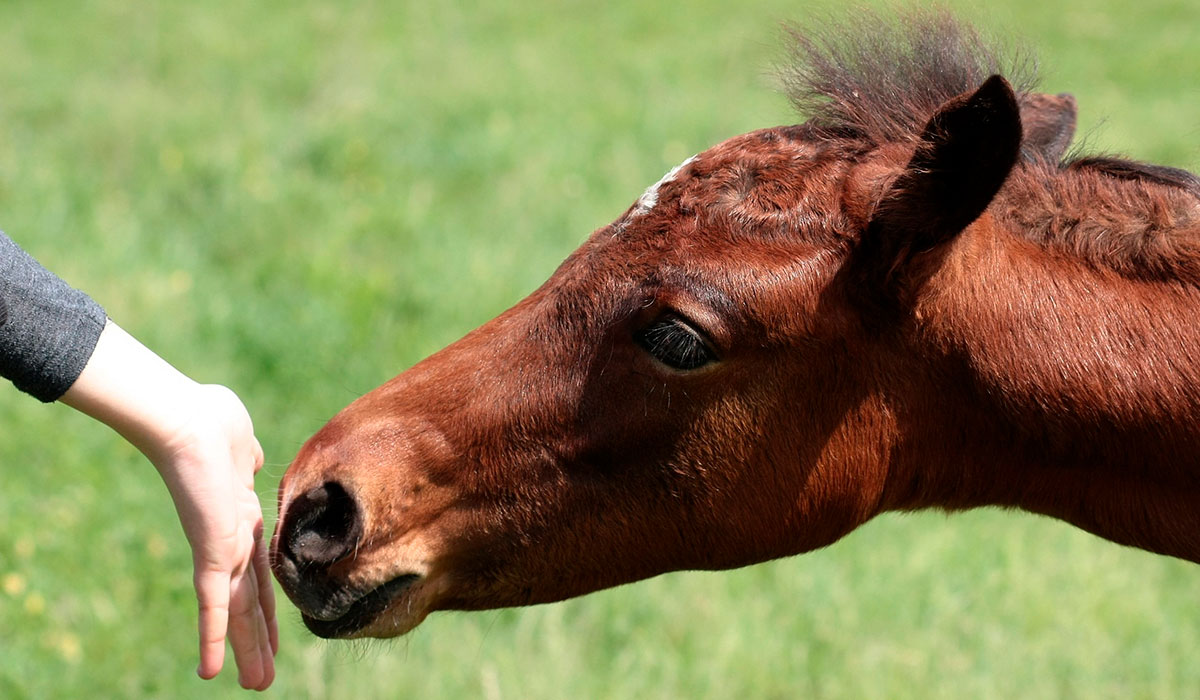
In these articles, I will deal with the subject from two points of view, contrasting them. On the one hand, there is “popular belief”, hat is, the knowledge transmitted through “oral tradition”, with little or no scientific basis. On the other hand, I will present the subject based on scientific research and studies.
The topics I will cover in this series of articles are:
- Horse lip-licking and non-nutritive chewing behaviour
- The effect of human–horse interactions on horse behaviour and stress
- The concept of Leadership and dominance and its implications for horse training
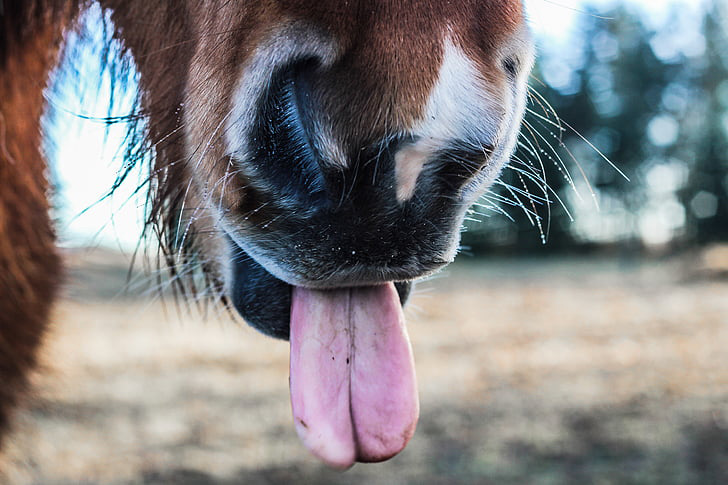
What does lip licking and non-nutritive chewing mean?
Horses sometimes make licking and chewing motions during training, especially when we are trying to bond with them and teach them the different aids or even calm them.
Most trainers will give you a simple explanation for that behaviour:
“That’s a sign that the horse is learning, thinking or showing ‘submission’ to the trainer”, which must be interpreted as meaning that the horse has begun to learn, or to identify the trainer as its "leader", and to trust him and his teachings.
From this reasoning, we can infer a number of consequences resulting from the way horses should learn what the trainer is trying to teach them.
I will address the concept of leadership later, in the last article in this series.
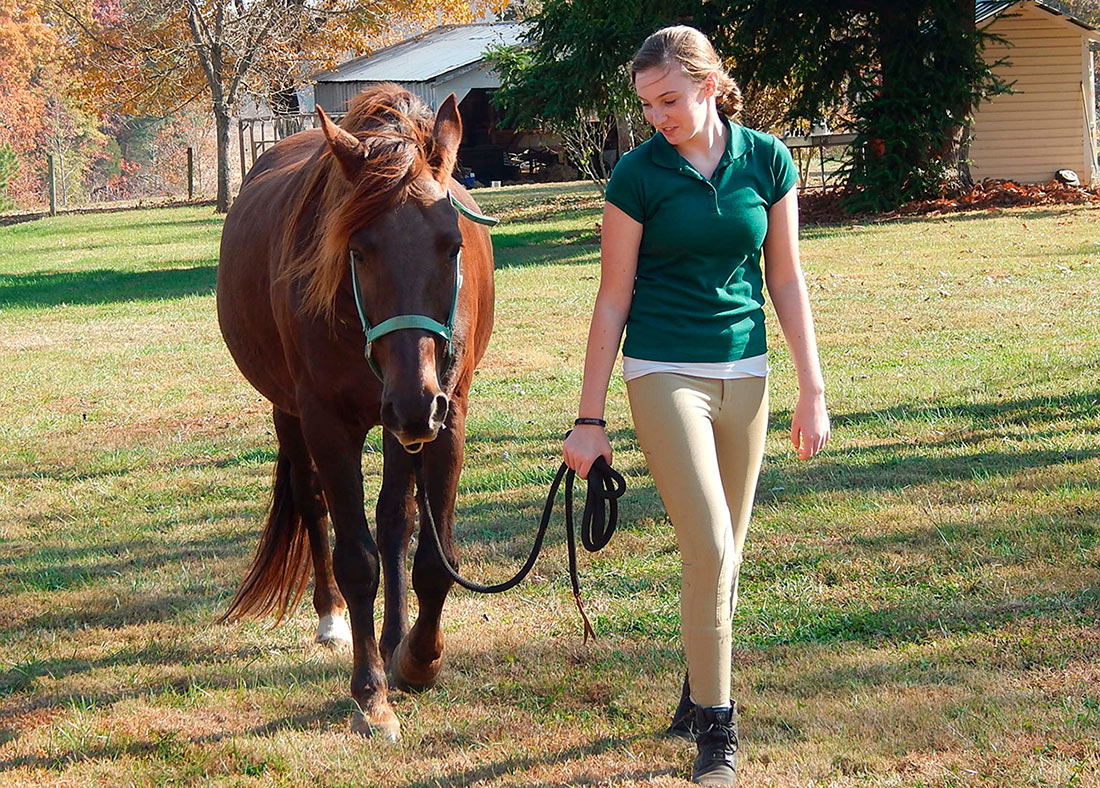
Would you like to be part of a group with an equestrian soul?
Join the Ampascachi Community. Obtain exclusive benefits for your holidays.
We tell you how to start, train and take care of your horse.
Interviews with direct providers of riding tours around the world.
Opinions of outstanding equine scientists and personalities in the equestrian sport world.
Science-based explanation
Based on scientific research, we will try to determine whether this concept is true or not.
Following an article published by the ISES, I will present a series of arguments that lead to a different conclusion than the one I mentioned above.
New studies in this regard suggest that a horse that makes these motions while not eating is actually showing a "natural" behaviour, which occurs after the horse has had a stressful situation.
To gain insight into the true reason for this behaviour in horses, a study was conducted at the Norwegian University of Life Sciences.
A team of equine scientists observed the social behaviour of feral horses under natural conditions, which provided valuable information that led to clear findings.
They spent 80 hours observing feral horse herds in Ecuador and collected data on 202 sequences of behaviour when licking and chewing behaviour occurred.
Margrete Lie and Rut Newberry were in charge of this study. Once finished, they presented their findings at the 14th International Society for Equitation Science (ISES), conference in Rome in 2018.
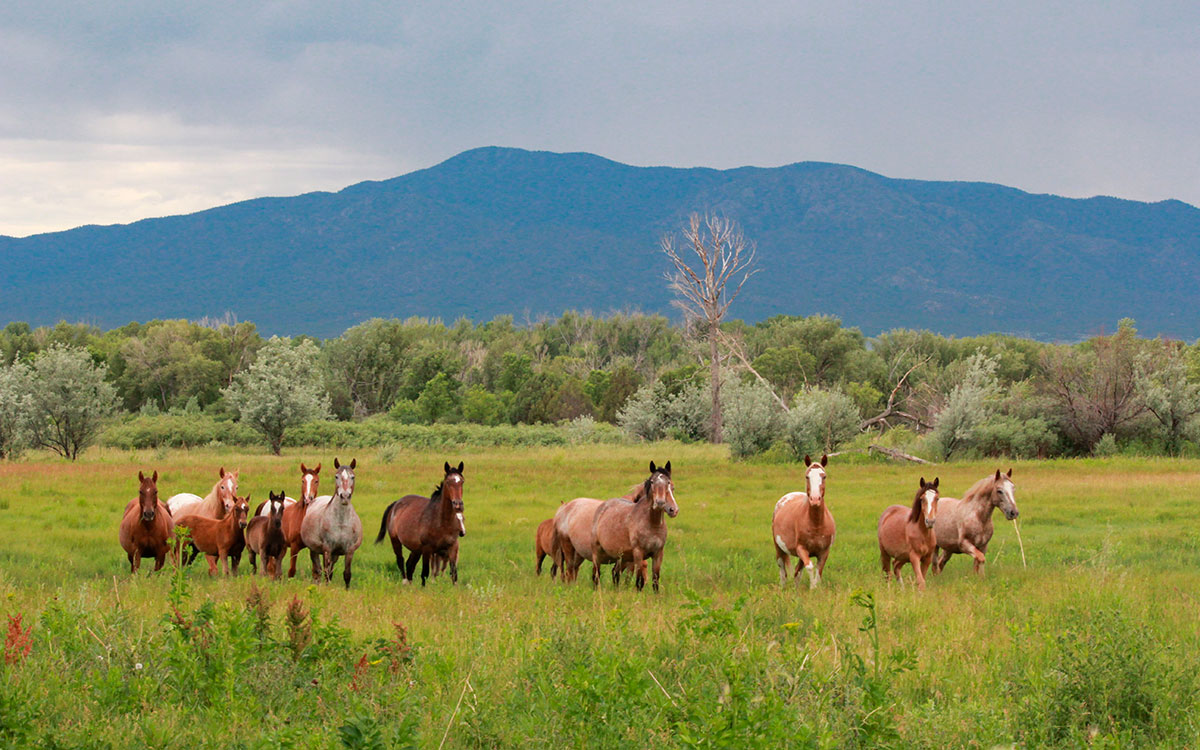
And what did they observe and why?
Well, the team wanted to investigate why horses sometimes chew on nothing and lick their lips.
They wanted to find out whether that behaviour was performed to signal submission to another horse and also to study whether horses performed the behaviour in between stressed and calm situations.
To test the theory, researchers watched as one horse (the aggressor) approached another horse in a threatening manner; it was thought the recipient horse would make the licking and chewing motions.
To their surprise, both the aggressive and the recipient horse made the chewing motions.
Non-nutritive chewing was actually performed more often by the aggressor than the recipient, refuting the assumption that this behaviour is a sign of submission.
Once they had observed that, the researchers wanted to see whether non-nutritive chewing occurred between tense and relaxed situations.
They noticed that before non-nutritive chewing, horses were tense, while after the licking and chewing behaviour, horses were more relaxed.
That is, the chewing motions occurred as the horse transitioned from a tense to a relaxed state.
The researchers concluded that licking and non-nutritive chewing could be associated with a switch from a dry mouth caused by stress to salivation associated with relaxation, but never with a submissive signal.
However, further research is required in this regard. What we can say, based on this type of studies, is that licking and chewing may be used as a behavioural indicator that the previous situation was perceived as stressful by the horse.
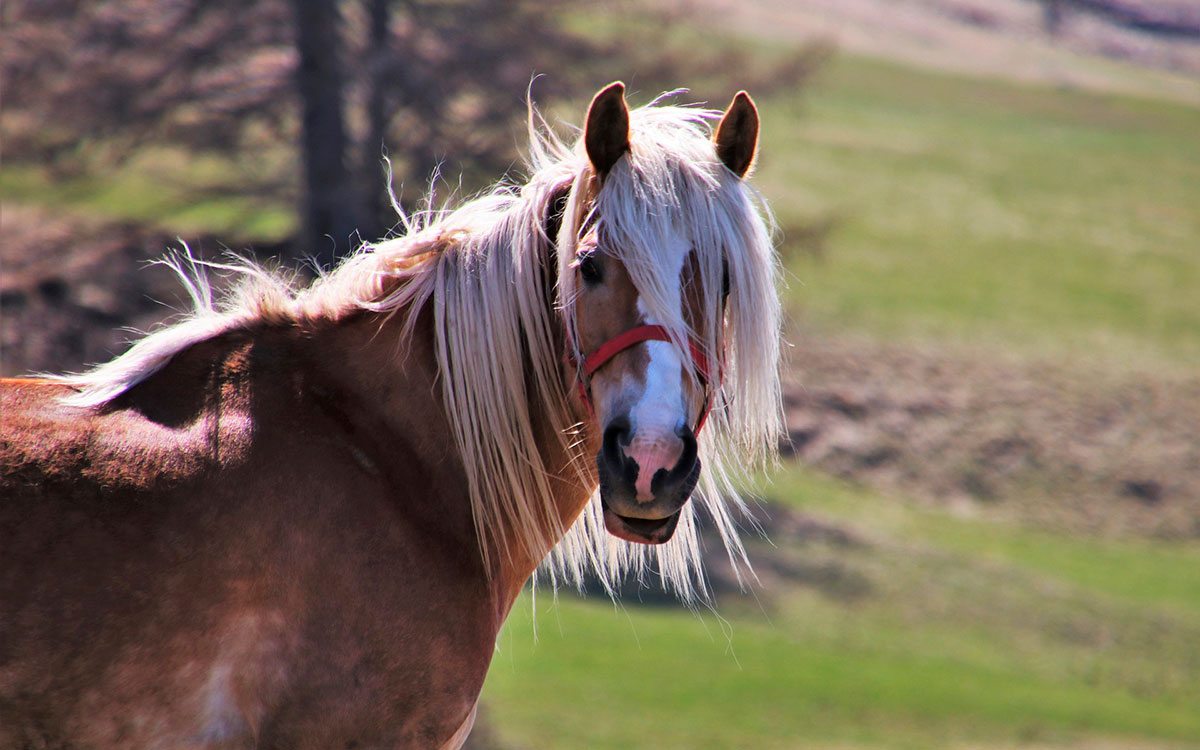
Subscribe to the Ampascachi Community and obtain benefits and exclusive content. Furthermore, we offer free advice on horses and equestrian tourism.
Final Conclusion
As I see it, the dispute is categorically settled - at least for now.
The lip licking and non-nutritive chewing behaviour “cannot be interpreted as a sign that the horse is thinking or showing ‘submission’ to the trainer as its leader”.
According to Dr. Sue McDonnell, a certified animal behaviourist and founding head of the University of Pennsylvania’s program in horse behaviour:
“Licking and chewing behaviour is probably one of the most misunderstood horse behaviours. It simply reflects a change in autonomic nervous system tone that results in salivation that stimulates licking, chewing, and sometimes a big swallow.”
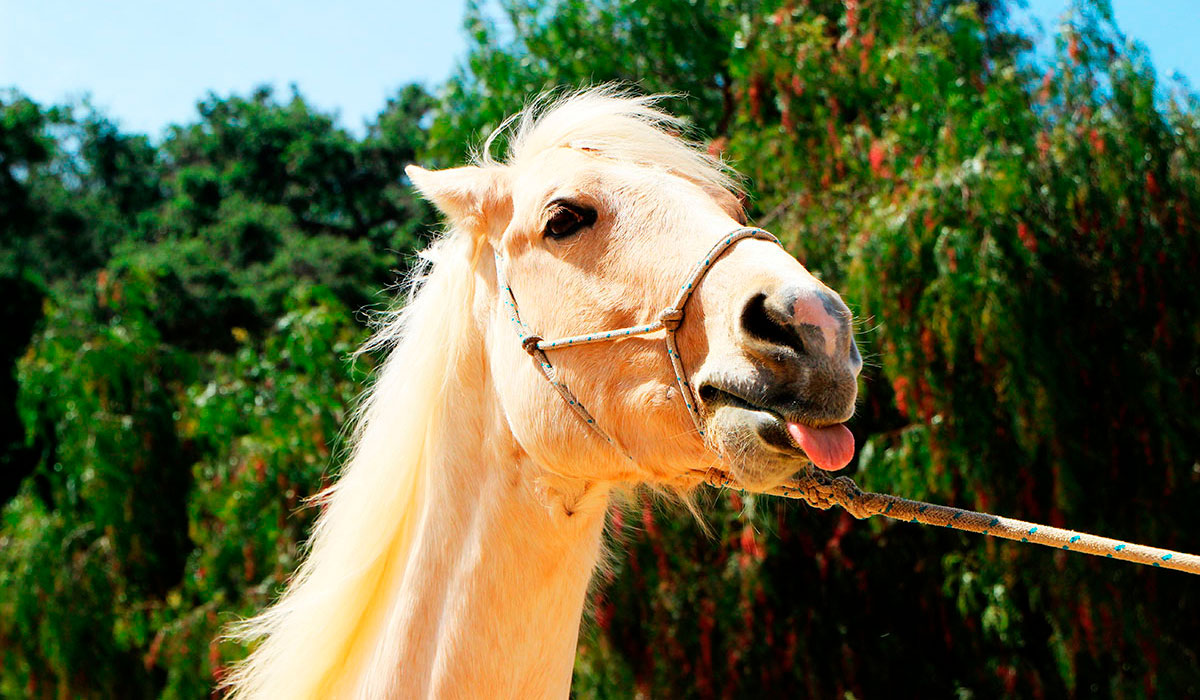
Finally, I hope that this article has helped explain this equine behaviour in a scientific way.
In the next article in this series, I will deal with another controversial topic – the effect of human–horse interactions on equine behaviour and stress.
Would you like to delve deeper into the world of horse training?
Download our free guide on Horse training step by step. There we tell you everything we have learned about horse training in more than 25 years of experience.
And if you want to be a professional horse trainer and get field-based training, you should check out our training program. You will have the opportunity to live in our equestrian centre and experience our full training process with young horses.
~
THIS COULD ALSO BE INTERESTING
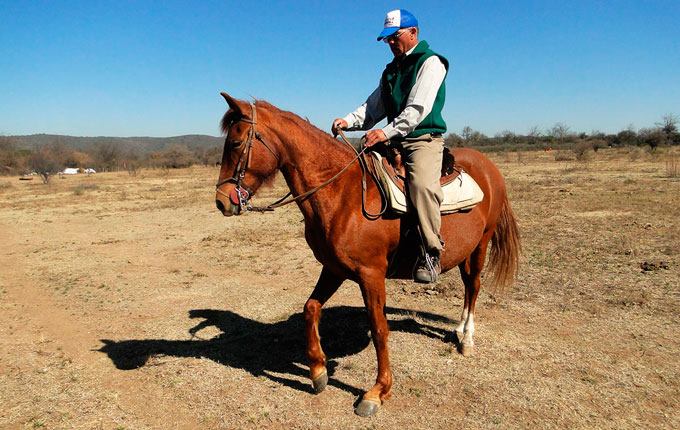
How do horses learn? - Part II
Learning theory and studies on animal behaviourism lay the foundation for horse education to achieve expected behaviour in horses.
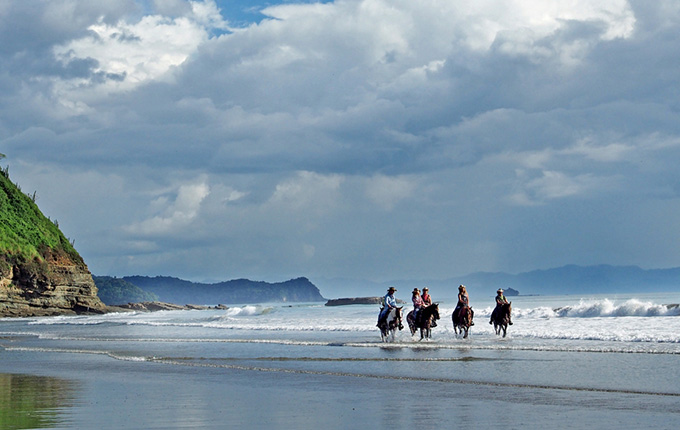
Horseback riding vacations in Nicaragua
Nicaragua is a country surrounded by volcanoes, beautiful beaches and crystalline lakes, which you can explore on your next equestrian holiday. Discover its pre-Columbian ruins and colonial architecture.
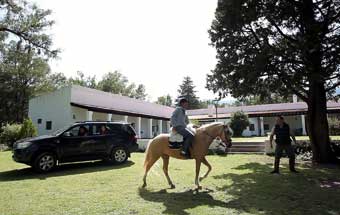
Planning a horseback riding route
You need to take into consideration various aspects when planning a riding route, especially the trails that must be comfortable for riders and horses.
~
WHAT IS YOUR OPINION? LEAVE A COMMENT
Your comments
I thought it was about reducing stress. But can it also be that it is a gesture of nausea, if for example, they have an intolerance to certain foods and their stomach is irritated and too acidic?
Subject is very interesting but you use such an odd words that the text is difficult to read and understand your point. Please use More common words and More simple expressions. Then I Will read this article More than willingly.
Planning your horse riding holidays?
Join the Ampascachi Community. You will get exclusive advantages and guidance for your next horse riding holiday.


 German
German French
French Spanish
Spanish